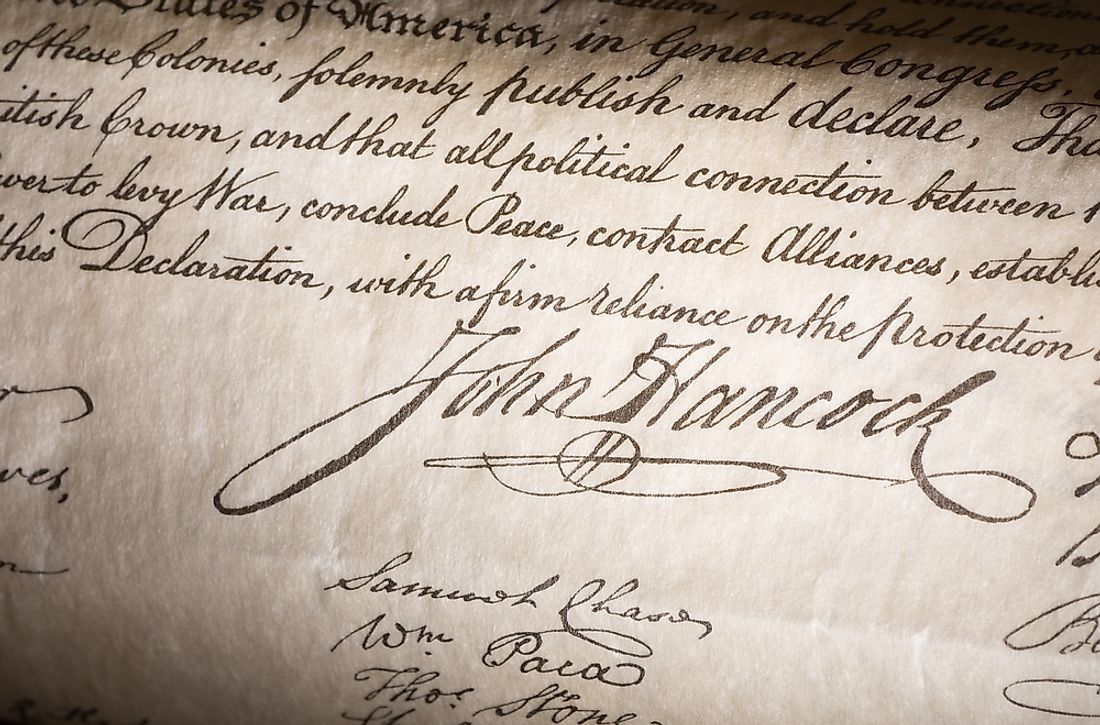Who Was the First to Sign the Declaration of Independence?

John Hancock was the first man to sign the Declaration of Independence upon its adoption on July 4th, 1776. At the time, he was the president of the Continental Congress. His signature was historically described as iconic due to its vivacious large nature which was an indication of confidence and vibrancy as far as independence of the United States of America was concerned. Though his signature was the first and the most significant, there were other fifty six signatories to the Declaration of Independence, among them being John Adams and Thomas Jefferson who later were presidents of the United States of America.
John Hancock: Life and Career
John Hancock lived between the year 1737 and 1793. With a leaning to the American Revolution, he is considered an American patriot. Before the revolution he was a very wealthy merchant, whose wealth played an immense role in his political career at its inception in Boston. His popularity rose in the year 1968 after the British charged and labelled him a smuggler. He was among the Boston leaders at the outbreak of the 1775 American Revolutionary War. In his pursuit of independence he went ahead to serve the Continental Congress as the president, leading the congress in the drafting, adoption, and signing of the Declaration of Independence. He then went ahead to serve as the first and third governor of Massachusetts. In his final years he was a key participant in the drafting of the United States Constitution.
The United States Declaration of Independence
By 1776, thirteen American colonies had been at war with the colonialists for more than one year. The American Revolution was in a bid to liberate these colonies from the rule of Great Britain, and declare them independent states collectively as the United States of America. After the revolutionary war, drafting of the United States Declaration of Independence was initiated by the Second Continental Congress. The president of the congress during that period was John Hancock. A committee of five was tasked with the drafting. On July 4, 1976, in a meeting of the congress at the Independence Hall in Philadelphia, the wording of the declaration were adopted and signed by the president of the congress, John Hancock, making it an authentic document declaring the thirteen colonies independent states.
Significance of the Declaration of Independence
The United States Declaration of Independence marked liberation from the rule of Great Britain. It was a mark of independence of the 13 states and the birth of a United States of America. It gave people a right to revolt against unfair colonial treatment. As part of the historical bravery of the USA forefathers, it gives the American people pride in their origin and a zeal to continue the bravery in maintaining equality among all and upholding of the basic human rights.
The signing the Declaration of Independence was not only notable to the American people but also served as an inspiration to other nations like France and New Zealand to revolt against colonial rule and fight for their own independence.











